Step-by-Step Guide To Filing A
Camp Lejeune Water Contamination Claim
Veterans, civilian workers, and their families on the base between 1953 and 1987 may have been exposed to contaminated toxic chemicals in the drinking water. As a result, you may be eligible to file a claim to receive compensation for your injuries. If you or a loved one served at Camp Lejeune and were subsequently diagnosed with cancer or another serious illness, this step-by-step guide will help you understand how to file your claim.

Camp Lejeune Water Contamination:
a Brief OVERVIEW
Later this summer, President Biden is expected to sign the Camp Lejeune Justice Act of 2022 into law. Its passage will culminate years of campaigning by those exposed to contaminated water while at Camp Lejeune, MCAS New River or Camp Geiger.
The camp’s water became contaminated in the early 1950s when industrial chemicals from various sources leaked into the groundwater. An estimated 750,000 people were exposed to the toxic substances before the government shut down the wells in 1987.

What toxic chemicals were in the drinking water at Camp Lejeune?</span
The VOCs found in the camp’s water wells included:
- Trichloroethylene (TCE): a solvent used to remove grease from metal parts.
- Tetrachloroethylene (PCE): a dry-cleaning chemical.
- Vinyl chloride: Over time, TCE and PCE degrade into vinyl chloride.
- Benzene: A chemical used to make plastics, resins, and other products.
Camp Lejeune Justice Act of 2022: Victims Can Now Sue for Damages
The President is expected to sign the bill into law this summer. Under the legislation, veterans, civilian workers and their families at the USMC Base Camp Lejeune in North Carolina and surrounding areas are free to file lawsuits against the federal government for injuries caused by the contaminated water.
If you are among this group, here are the steps to file your claim:

Step One:
Determine if You are Eligible to File a Claim
Anyone who lived or served at Camp Lejeune, Marine Corps Air Station New River, or Camp Geiger for at least 30 days between August 1, 1953, and December 31, 1987, and developed one of a list of serious illnesses will be eligible to file a claim for damages.
Can family members file on behalf of a loved one?
Yes, family members of those affected will be eligible to file a claim on their behalf, regardless of whether the affected person is living or deceased.

Step Two:
Talk to an Experienced Attorney
About Filing a Lawsuit
Now that you know you’re eligible to file a Camp Lejeune contamination claim, it’s wise to speak with an attorney who has experience handling these types of cases, and can ensure you receive the full compensation you deserve.
If you’re a do-it-yourself type, you might be tempted to file a claim on your own. But there are a few reasons you should consult with an attorney first.
What can an attorney do to help file my Camp Lejeune claim?
- Help you understand the new law and your rights.
- Ensure that you have all the necessary documentation to file a claim.
- File your claim for you.
- If necessary, represent you in court.
How much does it cost to hire an attorney?

Step Three:
assist attorney with Necessary Documentation
Though your attorney will handle the majority of the claim, you’ll likely need to assist in gathering some essential documentation including:
- Military service records.
- Proof of residency or employment at Camp Lejeune between August 1, 1953, and December 31, 1987.
- Medical records documenting a qualifying health condition.

Which health conditions are linked to
Camp Lejeune water contamination?

bladder cancer

Brain/CNS cancers
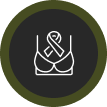
Breast cancer

Cardiac defects

End-stage renal disease

Esophageal cancer

Kidney cancer
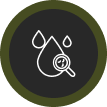
Multiple myeloma

Leukemias
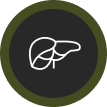
Liver cancer
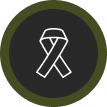
Non-Hodgkin's lymphoma

Pancreatic cancer

Parkinson disease

Prostate cancer

Rectal cancer

Scleroderma
(systemic sclerosis)
Additional scientific evidence has also linked exposure to
VOCs in Camp Lejeune's water to:

Aplastic anemia

Birth defects

Hodgkins disease
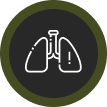
Lung cancer

Miscarriage
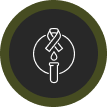
Myelodysplastic syndromes

Neurological problems

Ovarian cancer
Step Four:
Submit Your Claim
FIND OUT QUICKLY IF YOU QUALIFY
Find out quickly and easily if you qualify by filling out the short survey below.
Our legal team is here to ensure you receive the full compensation that you deserve.
FAQs About Camp Lejeune Water Contamination Claims
Under the new law, any individual damage awards received must be offset by the amount of disability compensation and health care benefits you’ve already received.
Compensation amounts will vary depending on the severity of the injuries and the extent to the exposure to the toxic water at the base. But Camp Lejeune has now been designated a superfund site by the federal government which makes compensation more available.
The exposure to toxic water at Camp Lejeune was removed in 1987 after the government and military were able to improve the water source.
